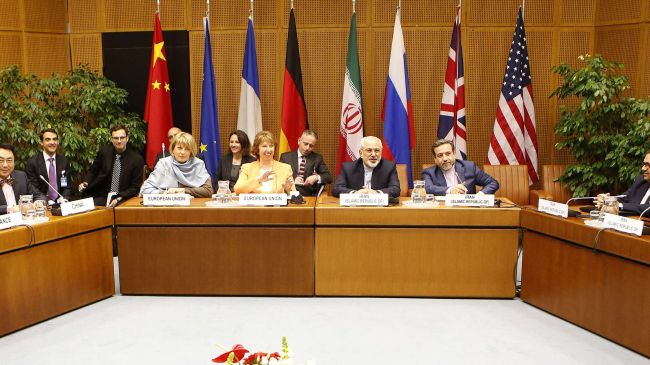U.S. Congress wants greater role in nuclear talks

By Sara Rajabova
In the background of ongoing nuclear negotiations between P5+1 and Iran, the U.S. lawmakers have urged President Barack Obama to involve the Congress in any decision to provide Iran with sanction relief.
In a letter to Obama released on July 10, over three-quarters of U.S. legislators in the House of Representatives said the White House must have "greater consultations" with Congress on any offer to dismantle anti-Iran bans under a potential nuclear accord, Iranian media reported.
The letter was signed by 344 out of the chamber's 435 members, including both Republics and Democrats.
The report comes as Iran and the six world powers - Russia, China, France, Britain, the U.S. and Germany- are holding extensive closed-door discussions to narrow their differences and reach a final deal on Tehran's nuclear energy program by July 20.
The letter shows Congress' interest in the Iran talks ahead of a July 20 deadline for international negotiators to extend an interim agreement or reach a long-term pact.
On July 3, negotiators from Iran and the six states officially opened their sixth round of talks this year in Vienna to discuss drafting a final agreement aimed at ending the decade-old dispute over Tehran's nuclear program.
No tangible progress has been achieved in the nuclear negotiation so far.
British foreign minister William Hague said significant differences remain between negotiators from Iran and the P5+1, but all possibilities should be exhausted to reach a final agreement.
His French counterpart Laurent Fabius had previously said differences in the approach toward Iran's nuclear energy program had emerged between Russia and Western countries over the past few days.
However, an EU official dismissed the information, saying that there are no rifts between the six powers.
Michael Mann, spokesman for European Union foreign policy chief Catherine Ashton, said the group of six countries "has been united and is still united."
On the other hand, Russia said it sees signs of progress in the ongoing talks. Russian Foreign Ministry spokesman Alexander Lukashevich said "discussions are quite difficult, but there are clear signs of progress."
Meanwhile, the foreign ministers of the six world powers are expected to attend the nuclear talks in Vienna on July 13.
Ashton has invited the foreign ministers to take part in talks over Tehran's long-lasting nuclear dispute.
The U.S. State Department has announced that Secretary of State John Kerry will travel to the Austrian capital to attend the negotiations.
A French diplomatic source who spoke on condition of anonymity told AFP that the French foreign minister will also attend the negotiations.
Permanent Representative of the Russian Federation to the International Organizations in Vienna Vladimir Voronkov will represent Russia in the ministerial meeting of the six countries.
P5+1 and Iran reached an interim pact last November under which Iran won some relief from economic sanctions in return for reining in some of its nuclear activities.
Their goal is to reach a comprehensive nuclear agreement by July 20that will lay to rest Western concerns about the Iranian program and ease all the sanctions on Tehran.
Here we are to serve you with news right now. It does not cost much, but worth your attention.
Choose to support open, independent, quality journalism and subscribe on a monthly basis.
By subscribing to our online newspaper, you can have full digital access to all news, analysis, and much more.
You can also follow AzerNEWS on Twitter @AzerNewsAz or Facebook @AzerNewsNewspaper
Thank you!
